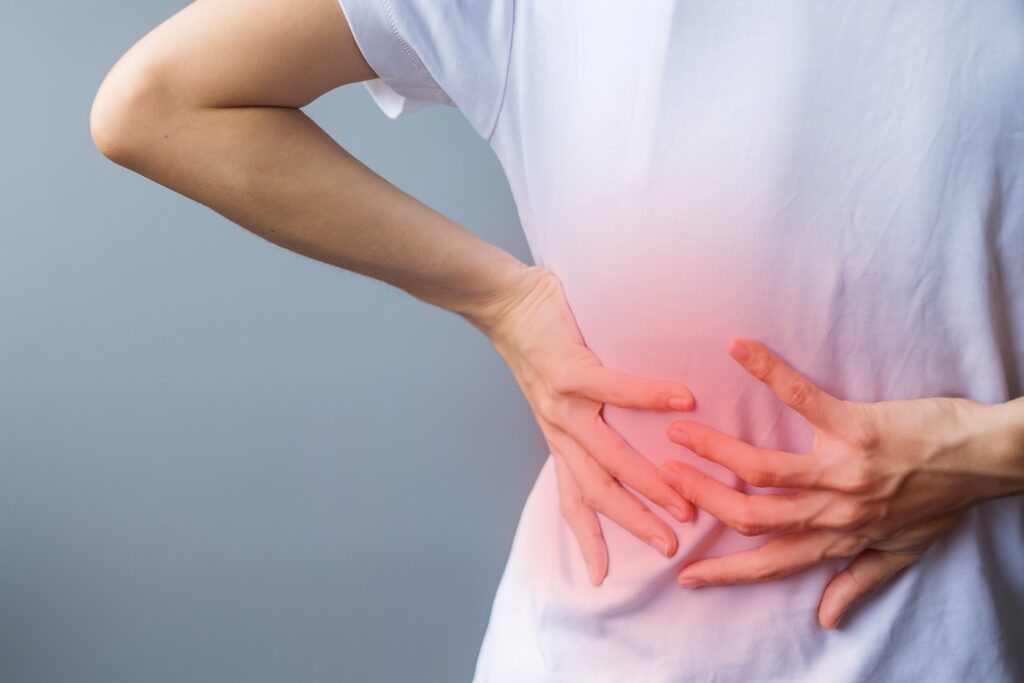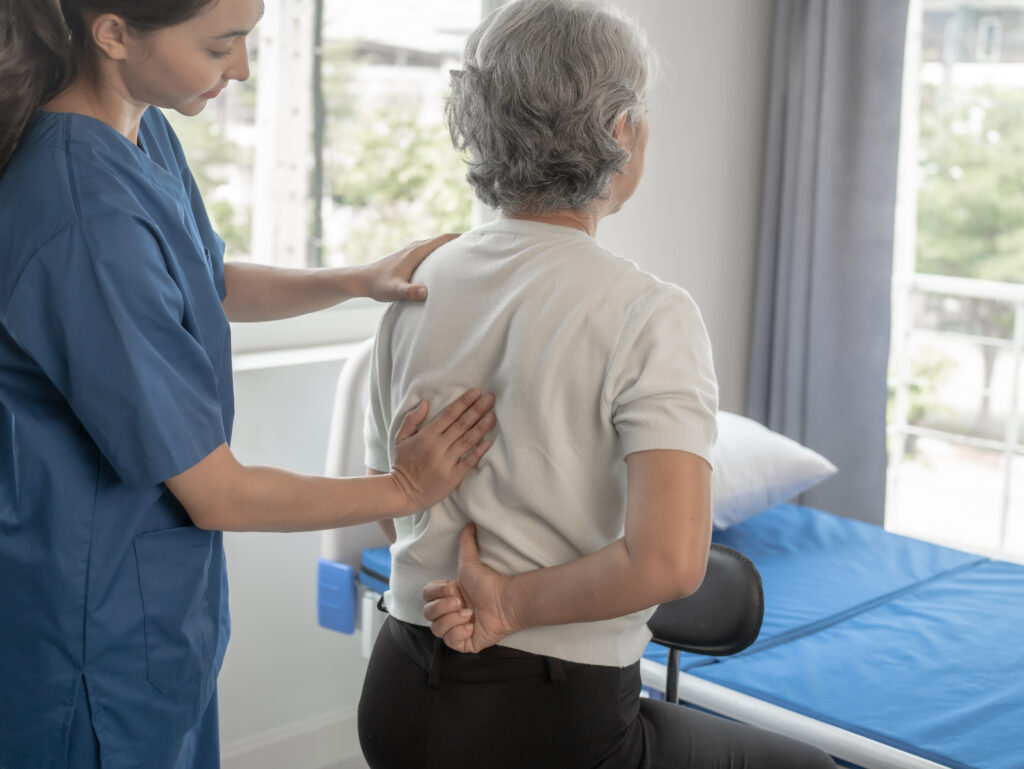Lower back pain is commonly caused by muscle strain, overuse or structure issues in the spine. Incorrect posture, prolonged sitting and heavy lifting are everyday activities that often lead to lower back pain. Those experiencing lower back pain may benefit from home remedies such as hot or cold compresses. However, if the pain is persistent or severe it may indicate a more serious underlying condition. Therefore it is important to consult an orthopedic specialist as soon as possible for proper diagnosis and effective treatment. A specialist will conduct the necessary medical evaluation and recommended appropriate treatment methods. Lower back pain is a health issue that should not be ignored and requires a professional approach.
- Lower Back Pain
- What Should You Do for Lower Back Pain?
- How Should People with Lower Back Pain Sleep
- When Does Lower Back Pain Go Away_
- What Should I Do If My Lower Back Pain Does Not Go Away?
- Which Specialist Should We See for Lower Back Pain?
What Should You Do For Lower Back Pain?

There are also simple methods that can be applied at home to alleviate back pain. First, using hot or cold compresses at regular intervals can be helpful. A hot compress can relax the muscles and relieve pain so performing gentle stretching exercises throughout the day is also beneficial. In this case, exercises that strengthen the back and abdominal muscles are recommended to provide better support. Additionally, sitting for prolonged periods can trigger back pain, so taking short breaks and moving around every hour is important. Using ergonomic furniture and maintaining proper posture is crucial. If the pain intensity increases, seeking professional help is essential.
Back pain affects many people’s daily lives. To relieve pain, various methods can be used. First, rest is important, so heavy activities should be avoided. Hot and cold compresses can be applied to reduce pain and swelling, thus providing relief. Proper posture and ergonomic seating positions are important to reduce pressure on the spine, which can ease the pain. Regular exercise is beneficial is beneficial as it strengthens muscles and increase pressure on the back, so losing weight can alleviate pain.
In addition, bed selection has a significant impact on back pain. Therefore, choosing an orthopedic mattress can help ensure proper spinal support, which can relieve pain during sleep. Moreover, when lifting heavy objects during the day, it is important to bend the knees and keep the back straight.
How Should People with Back Pain Sleep?
People with back pain need to be cautious while sleeping, as their sleep position can affect the pain. It is important to maintain the natural curve of the spine while sleeping. Therefore, trying to sleep on your back can be beneficial. Placing a pillow under your knees while sleeping on your back supports the lower back, reduces pressure and provides relief. When sleeping on your side, placing a pillow between your knees helps align the hips and spine better, reducing tension. Avoiding very soft or very firm mattresses is also crucial; orthopedic mattresses support sleep quality and back health. Consulting with a specialist about mattress selection can be helpful.
In this situation choosing the right mattress and pillow plays a critical role in managing back pain. Proper support and relaxation of the spine during sleep can be achieved. Regular exercise and staying active during the day are also important. Light exercises before bed can help relax the muscles and gentle stretching before sleep can improve sleep quality. These small changes can make a significant difference in pain management, leading to a more comfortable sleep experience.
Additionally medications prescribed by a doctor can help control pain and hot or cold compresses can reduce pain and swelling providing relief. Regular follow-up with a doctor is necessary to closely monitor the treatment process and achieve the best results.
However if back pain is severe or uncontrollable, consulting a specialist is essential. Professional treatment is crucial for chronic back pain. Seeking advice from an orthopedic specialist can provide the best methods for managing back pain, ensuring the right steps are taken in fight against back pain.
When Will Back Pain Go Away?

The duration of back pain can vary from person to person and depends on the underlying cause of the pain. Mild back pain often resolves within a few days. However, if pain persists for several weeks, it may indicate a more serious issue. In such cases, it is crucial to consult a specialist to accurately diagnose the underlying cause and receive appropriate treatment. Early diagnosis and suitable treatment are important for managing back pain effectively.
Ultimately it is difficult to provide a definitive answer to when back pain will go away. Each case requires a personalized approach. Therefore, discussing the duration and treatment options with a specialist is the best course of action. With proper medical intervention, it is possible to overcome back pain. Additionally, regular physical activity and ergonomic adjustment can help prevent back pain. Adopting healthy habits in daily life and making lifestyle changes can help prevent recurrence of the pain.
What Should I Do If My Lower Back Pain Does Not Go Away?
If your back pain does note improve, you should consult a specialist. Seeing an orthopedic doctor is the appropriate step. A specialist can accurately diagnose the source of pain and may use diagnostic methods such as MRI if necessary. A personalized treatment plan will be developed to manage long-term back pain effectively.
Regular light exercises are also important. Low-impact activities like swimming can strengthen your muscles and increase flexibility, helping to control the pain. However, it is important not to overdo exercises to avoid further damage to your back.
You may also use analgesic medications as prescribed by your doctor. Consistent use of prescribed medications can help control the pain. Hot and cold applications can also be beneficial for reducing inflammation and providing symptomatic relief.
Additionally, lifestyle modifications are important. Opt for ergonomic seating and working positions to reduce mechanical stress on the spine. Weight management is crucial as excess weight increases pressure on the lumbar spine. Losing weight can alleviate pain. Choosing the right sleeping position, such as supine or lateral decubitus can also aid in spine alignment and reduce pain.
Stress management is also essential to reduce muscle spasms, which can help alleviate back pain. Regular follow-up with your doctor is important to monitor the treatment process and modify the treatment plan as needed. Alternative therapies such as acupuncture and manual therapy can provide additional relief.
Finally, it is important to follow your specialist’s recommendations and participate in therapies as advised. Being patient and following recommendations can make overcoming back pain more achievable.
Which Specialist Should We See for Lower Back Pain?

For those suffering from back pain, orthopedic and traumatology specialists are key to effective treatment. These doctors specialize in treating musculoskeletal system diseases and injuries. Therefore, patients with back pain should see these specialist directly. An orthopedic and traumatology doctor can evaluate spine problems, disc herniation and other skeletal system issues. They can make an accurate diagnosis through a detailed examination and necessary imaging tests.
Depending on the patients condition, they will also decide if surgery is needed. Orthopedic and traumatology specialist offer a comprehensive treatment plan focused on the cause of the back pain.
In addition to an orthopedic doctor, you may also visit a rheumatologist. They can help evaluate if the back pain is related to rheumatic diseases. A general practitioner (GP) can also perform a general health check to see if there are any underlying systemic conditions causing the pain.
Lifestyle changes may be recommended, such as using ergonomic seating and work positions to reduce pressure on the spine. Weight control is also important as extra weight can increase pressure on the back. Regular doctor visits are essential to closely monitor the treatment process and make necessary adjustments.
If the back pain is due to a mechanical issue, these specialist are especially important. They carefully examine structural problems that might trigger back pain and offer personalized treatment programs increasing the chances of relief from the pain.
Conclusion
Back pain can significantly impact your quality of life and its treatment varies depending on the cause. Proper management of back pain starts with accurately diagnosis the underlying cause. Orthopedic and traumatology specialists play a critical role in treating back pain. They assess structural issues causing the pain and offer appropriate treatment options. If you have back pain that does not go away, it is important to consult a specialist to evaluate your condition. Working with expert doctors will help you understand the reasons for your back pain and create the most effective treatment plan.
